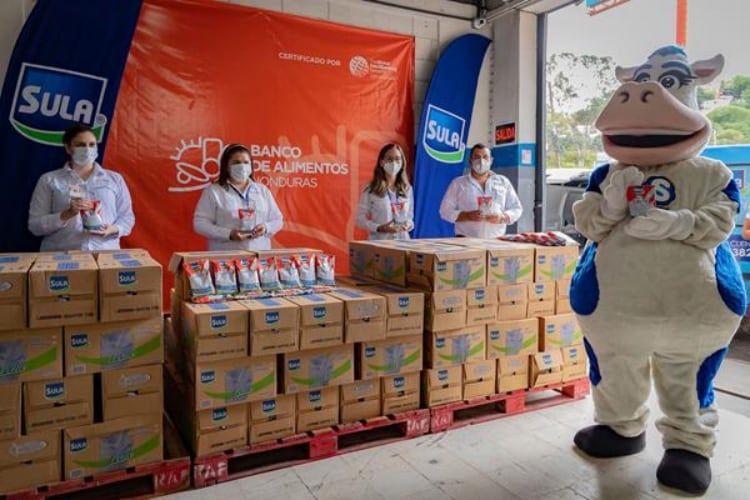The company has been certified by the FDA since 2001. Sula products are now available in Honduras, Guatemala, El Salvador, the Dominican Republic, the US, Panama, Grand Cayman, and Haiti.
The portfolio of products is manufactured in five processing plants in Honduras. Lacthosa maintains an annual purchase of 140m liters of fresh milk, which make it the leading company in the dairy sector in Honduras. It also provides jobs to more than 3,000 employees, has 639 sales routes and 23 distribution centers.
Through the production value chain, Lacthosa works directly with more than 4,000 milk suppliers and local citrus growers from different areas of Honduras.
Sula has been on the market in the US since 2001, specifically in Florida, Maryland and New Jersey.
“The community of Central Americans and Hispanics in the United States has grown exponentially, and as a brand we want to be present for that nostalgic market that wants to preserve its customs, roots, but above all enjoy the flavor of the Sula products,” Stephanie Kafie, Sula Food & Beverage Corporation, said.
“Sula is here to stay, and we want to invite all cultures in general to savor and discover the quality of our genuine and unique products.”
Sula Products can be found in Florida, at President, Sedano´s and Bravo supermarkets. Sula is also present in other states such as Tennessee and Louisiana.
Lacthosa dairy managing crisis in Honduras
The company has also been involved in coronavirus relief efforts, by delivering more than 1.4m food parcels in the months of March, April and May 2020, supporting 20 communities and reaching more than 60,000 families, including their employees.
The company provided medical and biosecurity equipment to hospitals and front-line personnel, guarantee food security in the low-income centers that it has always supported, maintained resilience in communities and job stability for the more than 3,000 employees.
“Lacthosa, our dairy company, with presence in Central America, the Caribbean and the United States, has been a model of resilience by keeping its operation running in times of Covid-19, providing security to its collaborators, clients, suppliers and above all, guaranteeing a continued purchase of raw milk to dairy farmers and the production and distribution of our products so as not to interrupt the food chain in Honduras,” Schucri Kafie, founder of Lacthosa, said.
The company said it has arranged transportation for all employees that meets the social distancing requirements, they receive a meal every day at the company´s cafeteria, and have received personal protective gear and equipment such as body suits, face masks and shields, boots and gloves.
In support to communities, it has also donated 15,000 personal protection masks, delivered 200,288 food parcels for medical personnel at five hospitals, 120,000 food baskets to the national police; and to benefit the vulnerable population, it donated 11,000 cups of yogurt, 17,095 glasses of milk, and 2,193 glasses of orange juice.
To mark World Milk Day, in alliance with the Honduran Milk Chamber (CAHLE) and Tetra Pak, Lacthosa donated 100,000 glasses of milk to the Honduran Food Bank.
It also joined a project with the Latin American Business Council (CEAL), to donate medical equipment that included 20 respirators, electric beds, electrocardiographs and infusion pumps to the Secretary of Health.
The Kafie Foundation, which acts as the social arm of Lacthosa, has also provided food, hygiene supplies and personal protection equipment to the four main hospitals in the capital, Tegucigalpa, Escuela, delivering 1,000 gallons of chlorine, 400 personal protection masks, 40 gallons of antibacterial gel, 4,000 food servings and 1,000 liters of water for medical and support staff.

